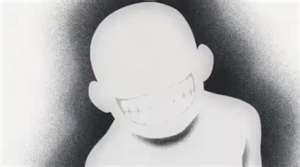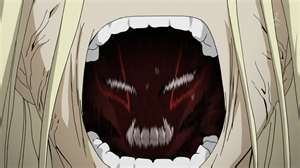After the fall of the Roman Empire, the focus of alchemical development moved to the Islamic World. Much مزید is known about Islamic alchemy because it was better documented: indeed, most of the earlier writings that have come down through the years were preserved as Arabic translations. The word alchemy itself was derived from the Arabic word الكيمياء al-kimia. The Islamic world was a melting pot for alchemy. Platonic and Aristotelian thought, which had already been somewhat appropriated into hermetical science, continued to be assimilated during the late 7th and early 8th centuries.
In the late 8th century, Jabir ibn Hayyan (known as "Geber" in Europe) introduced a new approach to alchemy, based on scientific methodology and controlled experimentation in the laboratory, in contrast to the ancient Greek and Egyptian alchemists whose works were often allegorical and unintelligible, with very little concern for laboratory work. Jabir is thus "considered سے طرف کی many to be the father of chemistry", albeit others reserve that عنوان for Robert Boyle یا Antoine Lavoisier. The historian of science, Paul Kraus, wrote:
“To form an idea of the historical place of Jabir’s alchemy and to tackle the problem of its sources, it is advisable to compare it with what remains to us of the alchemical literature in the Greek language. One knows in which miserable state this literature reached us. Collected سے طرف کی Byzantine scientists from the tenth century, the corpus of the Greek alchemists is a cluster of incoherent fragments, going back to all the times since the third century until the end of the Middle Ages.”
“The efforts of Berthelot and Ruelle to put a little order in this mass of literature led only to poor results, and the later researchers, among them in particular Mrs. Hammer-Jensen, Tannery, Lagercrantz , von Lippmann, Reitzenstein, Ruska, Bidez, Festugiere and others, could make clear only few points of detail…
The study of the Greek alchemists is not very encouraging. An even surface examination of the Greek texts shows that a very small part only was organized according to true experiments of laboratory: even the supposedly technical writings, in the state where we find them today, are unintelligible nonsense which refuses any interpretation.
It is different with Jabir’s alchemy. The relatively clear تفصیل of the processes and the alchemical apparatuses, the methodical classification of the substances, mark an experimental spirit which is extremely far away from the weird and odd esotericism of the Greek texts. The theory on which Jabir supports his operations is one of clearness and of an impressive unity. مزید than with the other Arab authors, one notes with him a balance between theoretical teaching and practical teaching, between the `ilm and the `amal. In vain one would seek in the Greek texts a work as systematic as that which is presented for example in the Book of Seventy.”
Jabir himself clearly recognized and proclaimed the importance of experimentation as follows:
The first essential in chemistry is that thou shouldest perform practical work and conduct experiments, for he who performs not practical work nor makes experiments will never attain to the least degree of mastery.
Early Islamic chemists such as Jabir Ibn Hayyan (Geberus in Latin; usually rendered in English as Geber), Al-Kindi (Alkindus) and Muhammad ibn Zakarīya Rāzi (Rasis یا Rhazes in Latin) contributed a number of key chemical discoveries, such as the muriatic (hydrochloric acid), sulfuric and nitric acids, and more. The discovery that aqua regia, a mixture of nitric and hydrochloric acids, could dissolve the noblest metal, gold, was to fuel the imagination of alchemists for the اگلے millennium.
Islamic philosophers also made great contributions to alchemical hermeticism. The most influential مصنف in this regard was arguably Jabir. Jabir's ultimate goal was Takwin, the artificial creation of life in the alchemical laboratory, up to and including human life. He analyzed each Aristotelian element in terms of four basic qualities of hotness, coldness, dryness, and moistness. According to Jabir, in each metal two of these qualities were interior and two were exterior. For example, lead was externally cold and dry, while سونا was hot and moist. Thus, Jabir theorized, سے طرف کی rearranging the qualities of one metal, a different metal would result. سے طرف کی this reasoning, the تلاش for the philosopher's stone was introduced to Western alchemy. Jabir developed an elaborate numerology whereby the root letters of a substance's name in Arabic, when treated with various transformations, held correspondences to the element's physical properties.
The elemental system used in medieval alchemy also originated with Jabir. His original system consisted of seven elements, which included the five classical elements (aether, air, earth, آگ کے, آگ and water), in addition to two chemical elements representing the metals: sulphur, ‘the stone which burns’, which characterized the principle of combustibility, and mercury, which contained the idealized principle of metallic properties. Shortly thereafter, this evolved into eight elements, with the Arabic concept of the three metallic principles: sulphur giving flammability یا combustion, mercury giving volatility and stability, and salt giving solidity. The atomic theory of corpuscularianism, where all physical bodies possess an inner and outer layer of منٹ particles یا corpuscles, also has its origins in the work of Jabir.
During the 9th to 14th centuries, alchemical theories faced criticism from a variety of practical Muslim chemists, including Alkindus, Abū al-Rayhān al-Bīrūnī, Avicenna and Ibn Khaldun. In particular, they wrote refutations against the idea of the transmutation of metals.
In the late 8th century, Jabir ibn Hayyan (known as "Geber" in Europe) introduced a new approach to alchemy, based on scientific methodology and controlled experimentation in the laboratory, in contrast to the ancient Greek and Egyptian alchemists whose works were often allegorical and unintelligible, with very little concern for laboratory work. Jabir is thus "considered سے طرف کی many to be the father of chemistry", albeit others reserve that عنوان for Robert Boyle یا Antoine Lavoisier. The historian of science, Paul Kraus, wrote:
“To form an idea of the historical place of Jabir’s alchemy and to tackle the problem of its sources, it is advisable to compare it with what remains to us of the alchemical literature in the Greek language. One knows in which miserable state this literature reached us. Collected سے طرف کی Byzantine scientists from the tenth century, the corpus of the Greek alchemists is a cluster of incoherent fragments, going back to all the times since the third century until the end of the Middle Ages.”
“The efforts of Berthelot and Ruelle to put a little order in this mass of literature led only to poor results, and the later researchers, among them in particular Mrs. Hammer-Jensen, Tannery, Lagercrantz , von Lippmann, Reitzenstein, Ruska, Bidez, Festugiere and others, could make clear only few points of detail…
The study of the Greek alchemists is not very encouraging. An even surface examination of the Greek texts shows that a very small part only was organized according to true experiments of laboratory: even the supposedly technical writings, in the state where we find them today, are unintelligible nonsense which refuses any interpretation.
It is different with Jabir’s alchemy. The relatively clear تفصیل of the processes and the alchemical apparatuses, the methodical classification of the substances, mark an experimental spirit which is extremely far away from the weird and odd esotericism of the Greek texts. The theory on which Jabir supports his operations is one of clearness and of an impressive unity. مزید than with the other Arab authors, one notes with him a balance between theoretical teaching and practical teaching, between the `ilm and the `amal. In vain one would seek in the Greek texts a work as systematic as that which is presented for example in the Book of Seventy.”
Jabir himself clearly recognized and proclaimed the importance of experimentation as follows:
The first essential in chemistry is that thou shouldest perform practical work and conduct experiments, for he who performs not practical work nor makes experiments will never attain to the least degree of mastery.
Early Islamic chemists such as Jabir Ibn Hayyan (Geberus in Latin; usually rendered in English as Geber), Al-Kindi (Alkindus) and Muhammad ibn Zakarīya Rāzi (Rasis یا Rhazes in Latin) contributed a number of key chemical discoveries, such as the muriatic (hydrochloric acid), sulfuric and nitric acids, and more. The discovery that aqua regia, a mixture of nitric and hydrochloric acids, could dissolve the noblest metal, gold, was to fuel the imagination of alchemists for the اگلے millennium.
Islamic philosophers also made great contributions to alchemical hermeticism. The most influential مصنف in this regard was arguably Jabir. Jabir's ultimate goal was Takwin, the artificial creation of life in the alchemical laboratory, up to and including human life. He analyzed each Aristotelian element in terms of four basic qualities of hotness, coldness, dryness, and moistness. According to Jabir, in each metal two of these qualities were interior and two were exterior. For example, lead was externally cold and dry, while سونا was hot and moist. Thus, Jabir theorized, سے طرف کی rearranging the qualities of one metal, a different metal would result. سے طرف کی this reasoning, the تلاش for the philosopher's stone was introduced to Western alchemy. Jabir developed an elaborate numerology whereby the root letters of a substance's name in Arabic, when treated with various transformations, held correspondences to the element's physical properties.
The elemental system used in medieval alchemy also originated with Jabir. His original system consisted of seven elements, which included the five classical elements (aether, air, earth, آگ کے, آگ and water), in addition to two chemical elements representing the metals: sulphur, ‘the stone which burns’, which characterized the principle of combustibility, and mercury, which contained the idealized principle of metallic properties. Shortly thereafter, this evolved into eight elements, with the Arabic concept of the three metallic principles: sulphur giving flammability یا combustion, mercury giving volatility and stability, and salt giving solidity. The atomic theory of corpuscularianism, where all physical bodies possess an inner and outer layer of منٹ particles یا corpuscles, also has its origins in the work of Jabir.
During the 9th to 14th centuries, alchemical theories faced criticism from a variety of practical Muslim chemists, including Alkindus, Abū al-Rayhān al-Bīrūnī, Avicenna and Ibn Khaldun. In particular, they wrote refutations against the idea of the transmutation of metals.


























